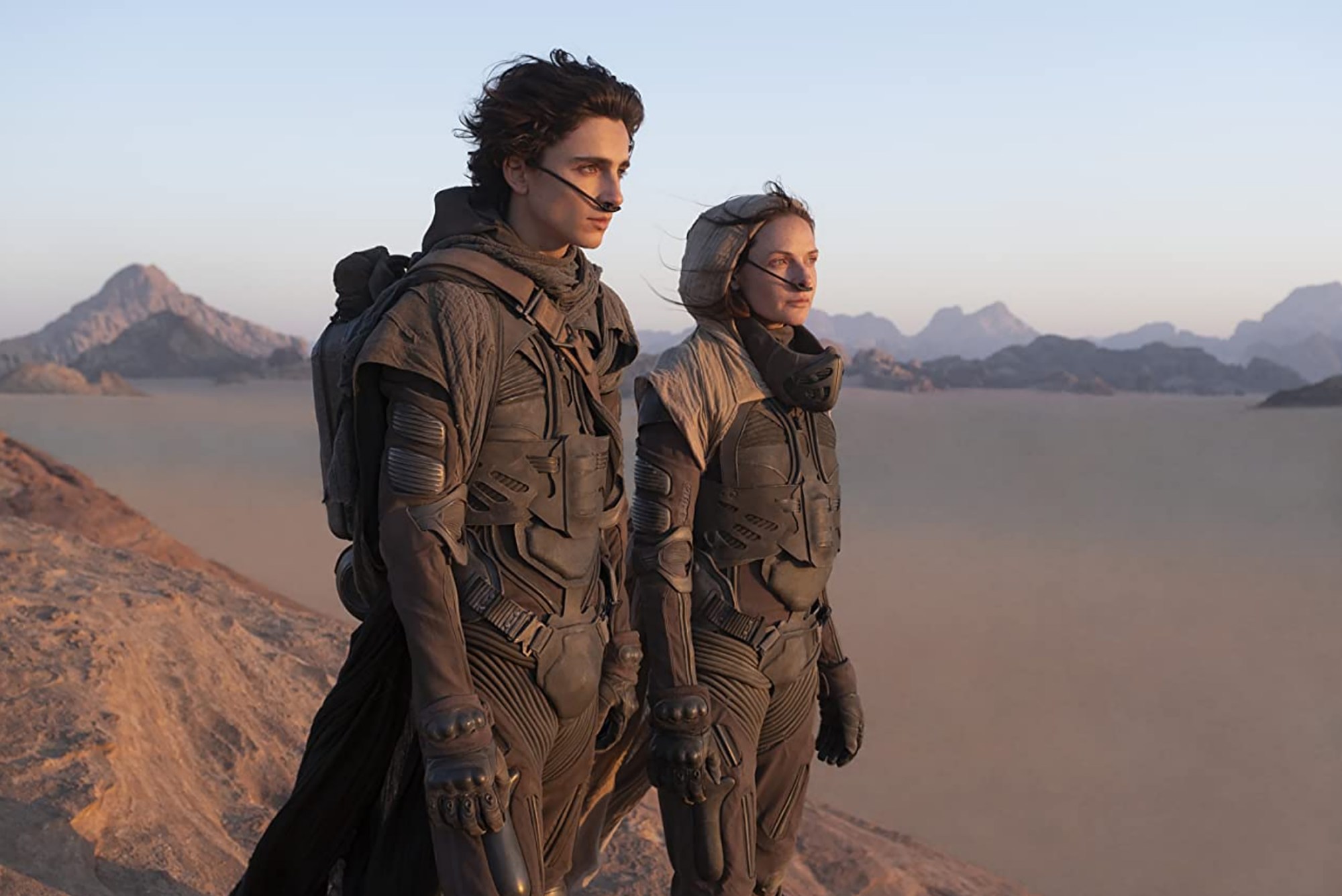
- Festivals
Denis Villeneuve on “Dune”
When the end credits started to roll after the first press screening of Dune at the Venice Film Festival, enthusiastic applause filled the Sala Grande screening theater. Director Denis Villeneuve’s bold adaptation of Frank Herbert’s iconic science fiction novel divides the 412-page book into two sections, with Dune: Part One (the movie’s full moniker) introducing audiences to the dangerous desert planet of Arrakis, colossal sandworms and a young heir named Paul Atreides (played by Golden Globe-nominated actor Timothée Chalamet).
“When I read the novel as a kid, I was struck by the way Paul finds his identity and comfort in another culture,” explained Villeneuve at the film’s official press conference. “His relationship with nature and this feeling of melancholy and beautiful isolation that the character goes through as he struggles with the weight of his heritage on his shoulder. That is something that deeply moved me at the heart at the beginning.”
This is not the first time audiences have seen Frank Herbert’s story adapted for the big screen. David Lynch’s Dune received questionable reviews when it was released in 1984, but it remains a cult classic and a sci-fi favorite. And now Villeneuve (who directed Arrival and Blade Runner 2049) has stepped into the director’s chair to bring a fresh outlook on the prescient story, which was first published in book form in 1965.
When asked how relevant the story is to present-day audiences, Villeneuve remarked: “When Frank Herbert wrote Dune in the ‘60s, he was doing a portrait of the 20th Century. I think the book is by far more relevant today about the danger of messianic figures, the impact of colonialism and the problem with the environment. As this book stayed with me through the years, it felt more and more relevant. Sadly, I think the movie will speak to the world right now more than it would have done 40 years ago.”
Speaking to the environmental themes of the movie, a passionate Villeneuve added: “I think that future generations will judge us. I think it’s time to get angry right now, I think it’s time to push and to make changes. I still have hope, but I think that it’s time to get into action.”
The director had a much more lighthearted response when he was questioned about the challenges he faced in bringing this latest version of Dune to the big screen. “The biggest challenge was by far to deal with Timothée’s hair because it’s alive,” he chuckled. “I had to direct Timothée and I had to direct his haircut.”
Villeneuve paused before continuing with a more serious response: “I would say that the biggest challenge was to try and find [the right] balance because the book is so rich. It was tough to find an equilibrium in giving the audience who hasn’t read the book the information that they need to understand the movie without crushing them with exposition – and trying to be as cinematographic as possible. That was the big challenge; trying not to write a lot of information so the audiences could follow the story correctly and follow this adventure.”
Dune: Part One will be released simultaneously in movie theaters and HBO Max in the USA, although Villeneuve would much prefer audiences to experience the epic fantasy on the big screen. “These are difficult times for everybody and we all agree that safety [must come] first, but if the audience feels comfortable and there is a safe environment, I encourage them to see this movie on the big screen. This has been dreamt [for the big screen]. It has been designed, it has been made and it has been shot in IMAX. When you watch this movie on a big screen, it’s almost like a physical experience. We tried to design a movie that will be as immersive as possible. And for me, the big screen is part of the language.”
Villeneuve’s comments on his commitment to the big screen drew a round of applause in the press room, where the director was accompanied by cast members including Timothée Chalamet, Zendaya, Oscar Isaac, Rebecca Ferguson, Javier Bardem and Josh Brolin.
For now, Dune: Part Two is yet to be greenlit, but the director did comment on the benchmark needed for the project to move forward. “I am not the one who will draw that line,” he remarked. “I think one thing for sure is that Warner Bros. and Legendary are proud of the movie right now. They are putting all their efforts to bring it to the world on the big screen, which I am very happy for. We will see how it goes.”

